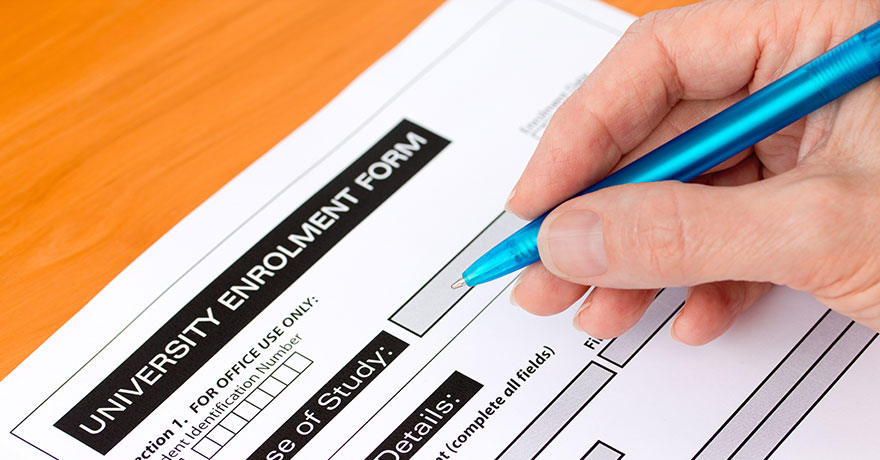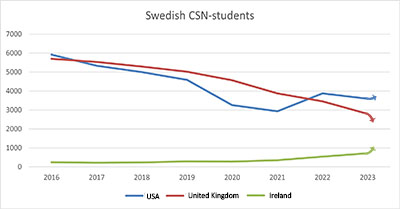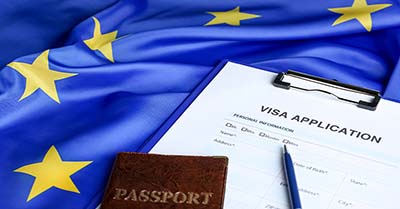How to apply to universities abroad
Applying to a foreign university is usually the most daunting task for a student who wants to study abroad, but it is usually not so difficult. Here we will look at it step by step.
- When should I apply?
- How many schools should I apply for?
- Where do I apply?
- What are the requirements to get accepted to a university abroad?
- What documents do I need to submit when I apply?
- Can you help me with the application?
When should I apply?
The basic rule is the sooner, the better. If you apply early, you have a greater chance of arranging everything on time, and you will be able to apply for another school if you are not accepted. Early applications also give you greater chances of getting a scholarship.
High-ranking universities often have an application deadline of up to one year before the start of the course. The University of Cambridge in England, for example, has their application deadline in October for the programs that start in October the following year. Ordinary universities often have deadlines approximately six months before the start of the course while smaller colleges and low-ranking universities often take applications up to a month or two before the semester starts. However, it is always better to apply early, so you have enough time to submit a complete application and get a visa on time.
For longer courses in Japan, you should apply close to half a year before the start of the course to get your student visa on time. If you want to study in the United States, you should also apply in good time since visa interview slots will be in shortage at many US Embassies close to the big starting dates. Read more about student visa to the US and Japan.
How many schools should I apply for?
It is better to make one good application than many bad ones. Often you can get a reply within a month, so if you apply early, you still have the chance to apply for more schools if you don’t get accepted. Many schools charge application fees for international students so that is another reason not to apply to so many schools.
For low-ranking universities, community colleges and language schools it is easy to get accepted so applying to one school is usually enough, but if you apply for high-ranking universities, it will be harder. Then you might apply for a couple at the same time.
Where do I apply?
Nowadays applications are usually made online on the school's website. In the UK and Ireland most university applications are made online through UCAS and CAO.
We and/or our partners can help you with the application to many language schools and universities abroad. Fill out an information request so we can help you!
What are the requirements to get accepted to a university abroad?
This is a very common question which is impossible to answer. Each school and program have their own admission requirements which you can look up on the school’s website.
To apply for an undergraduate program, you need to have graduated from high school, and you will need to fulfill the school’s language requirements. To study at Master level you need a Bachelor’s Degree and/or several years work experience. Language requirements are usually higher at Master level since you will be dealing with a more complex academic language. Read more in our article do I need good grades to study abroad?
However, you can study abroad even if you have bad grades or never graduated from high school. Seattle Central College has a high school completion plus program where you can take an Associate Degree and a high school diploma in only two years. Another option is to study at a language school abroad, they are open to anyone who wants to improve their language skills.
What documents do I need to submit when I apply?
What you should submit with your application differs from school to school. You will find this information under Admission Requirements (or a similar headline) on the school’s website. Here are some of the most common documents that you need to submit when you apply to a university abroad:
- The school's application form. This usually consists of simple questions like personal details and details about the program that you are applying for. Read it carefully and fill out all the required fields. Do not forget to sign it.
- Your grades from high school and college. These documents must be translated into English. Some schools even require that your high school or translator send the grades directly to them.
- A copy of your passport so that the school can issue a visa letter. To some countries, for example Japan, you might also need to send copies of entry stamps and visas from previous visits.
- Proof that you meet the school’s English language requirements. In the U.S. the TOEFL test is usually requested while English and Australian universities prefer an IELTS exam. However, most universities approve both of these tests and many also accept the Cambridge exam. The scores required for entry depend on the school and program that you are applying for.
- Standardized tests If you are applying for degree programs in the US and some other countries you might need to take a standardized test such as SAT for undergraduate level and GMAT or GRE for Master programs.
- A financial statement to show that you can pay for your studies and living expenses. You will need a bank statement in English. It should preferably be a letter written by the bank that states how big your assets are and how much it corresponds to in the school's currency. The letter must be signed and stamped by the bank. Read the school's instructions for more information about what amounts you need and how it should be documented.
- Motivation letters and reference letters. Universities in the English speaking world don’t only look at your grades. It is also common that you are asked to submit references and motivation letters to prove that you are a suitable student. A good motivation letter can help you to get accepted even if your grades are not great and it can also help you to get a scholarship from the school, so put some effort into these letters. See samples and advice about reference letters and motivation letters.
Can you help me with the application?
Together with our partners we can help you with the application to:
- All UK universities and programs in English in the Netherlands, Spain, Germany and Italy.
- All universities in Australia
- Many colleges and universities in the US
- Selected universities in Korea and Malaysia.
- BHMS Business and Hotel Management School in Switzerland
- Language schools all over the world
- On the schools featured in our school database you can also get more help from us and the school.
Fill in an information request so we can help you!
More information
You might also be interested in our article how to get into the best universities in the world.
Follow @dreamstudiesabroad on Facebook, Instagram, Tiktok, or Youtube to get updated about our new schools and articles.






















